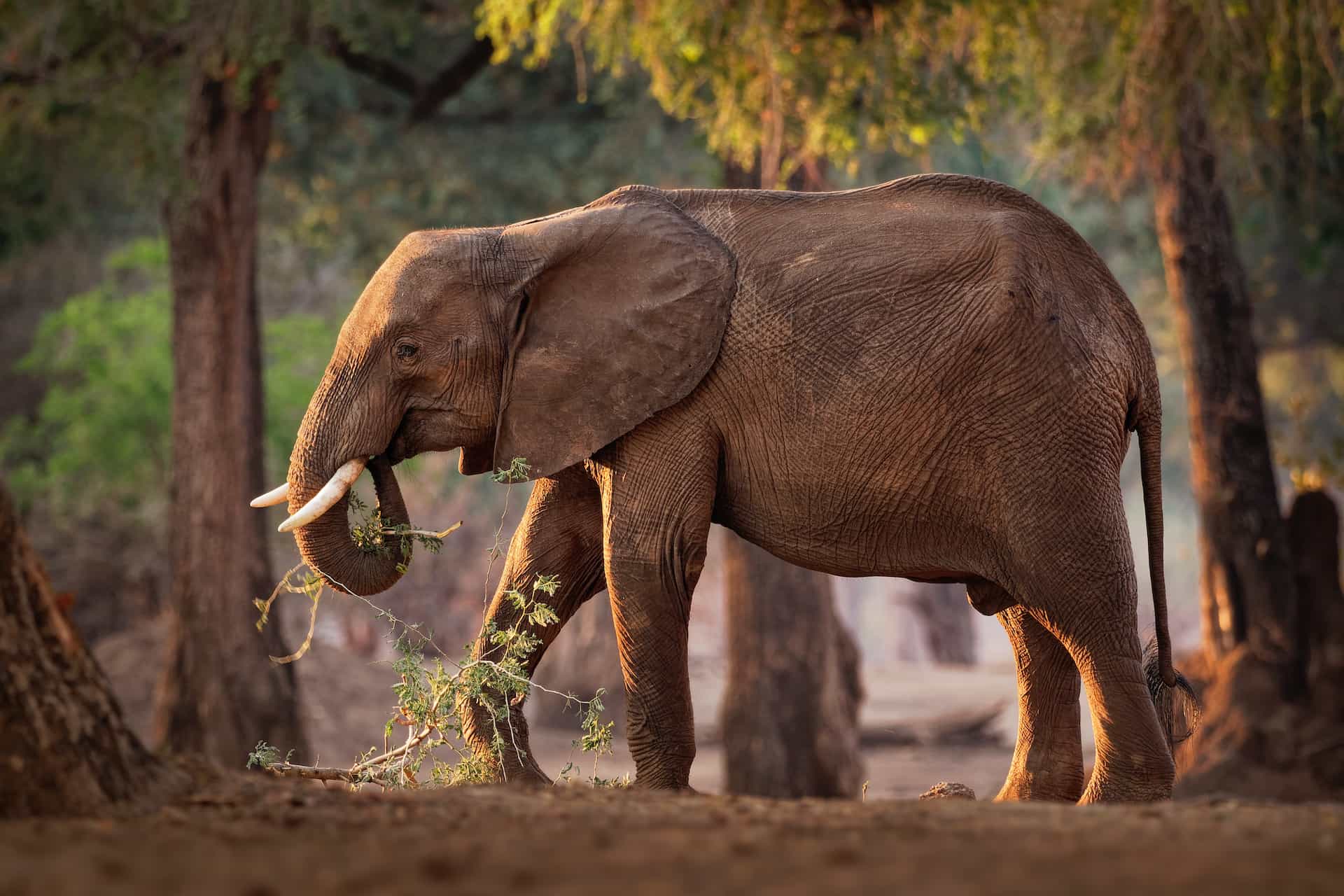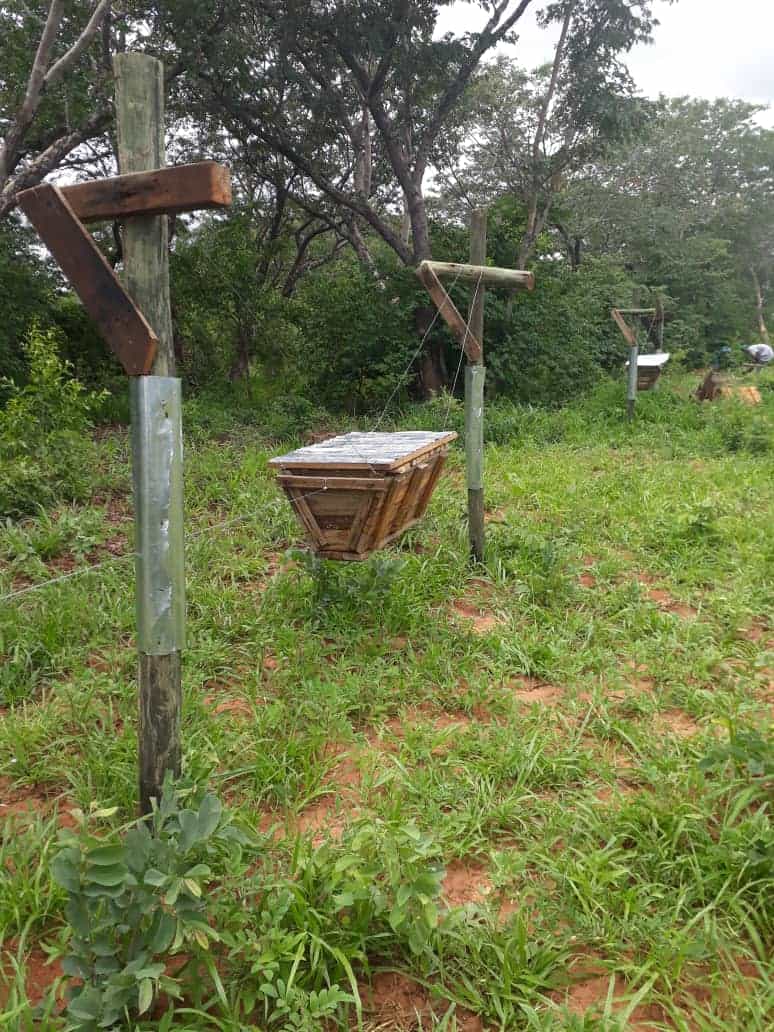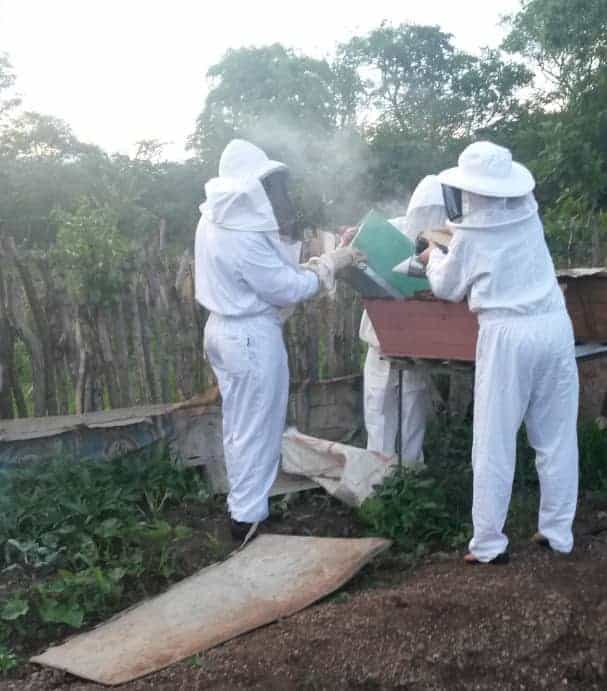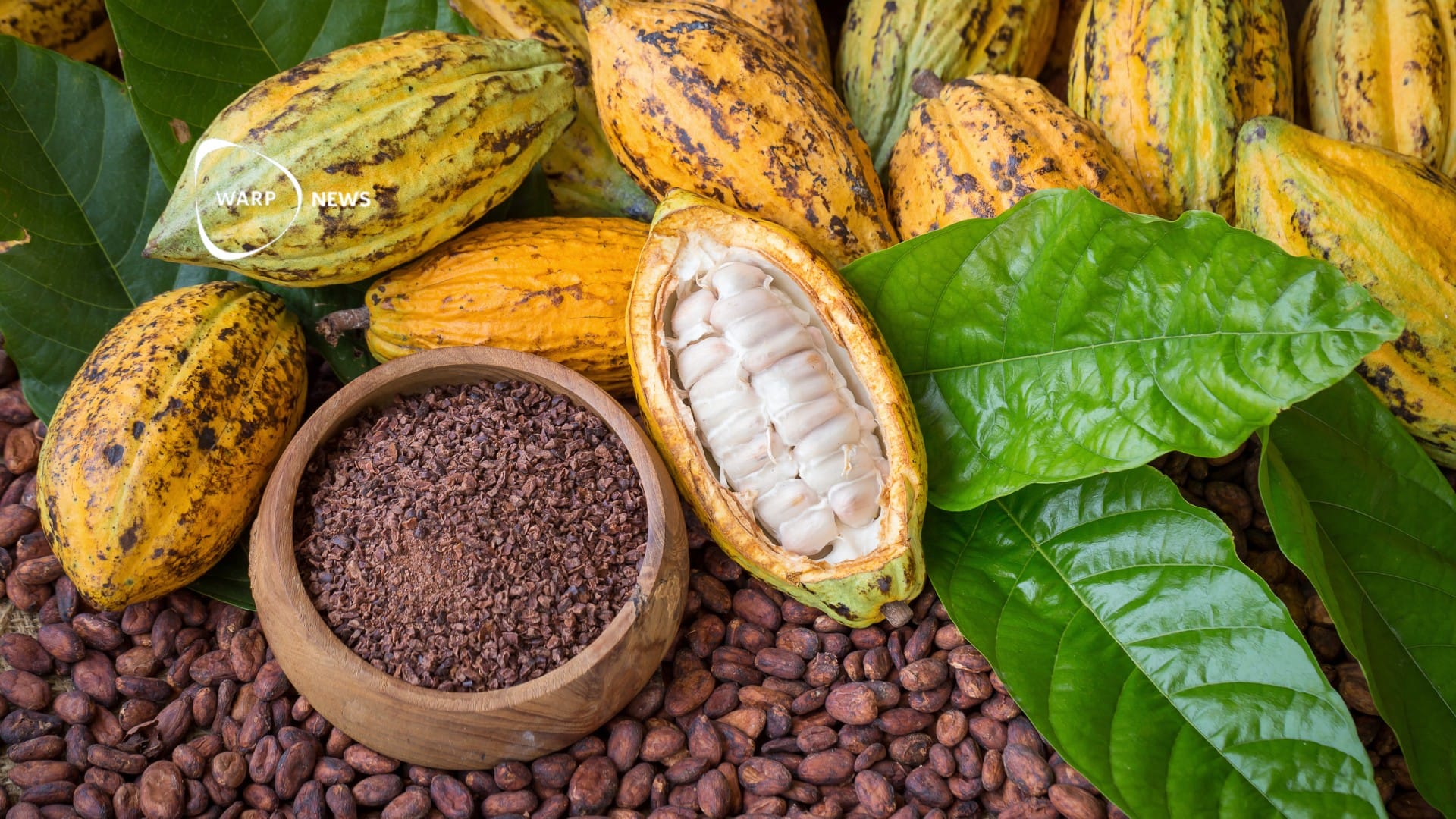
🐝 Biological control of elephants bearing fruits in Zimbabwe
Elephant beehive fencing protects the crops and provides safety for farmers. The honey from the bees also means an additional income, writes Khumbu Muleya, Warp News reporter in Zimbabwe.
Share this story!
For years the human-wildlife conflict has been topical in most areas that border national parks in Southern Africa. The problem is more severe during the cropping season when communal farmers spend most nights and days guarding their fields against marauding large mammals such as elephants.
In some cases, farmers were trampled to death and injured to varying degrees while fields were plundered, leaving little or nothing to harvest. However, in 2018 some farmers in the Woodlands area, Hwange District in Zimbabwe's Matabeleland North Province, introduced a biological method to deter elephants from invading their fields. The place is located about 21 km south of Victoria Falls town.
The method known as elephant beehive fencing (EBF), involves the setting up of beehives around a particular field with beehives hanging on wire or otherwise. When elephants come they shake the beehives. Once disturbed, bees are quick; they sting, sending the elephants back into the forest. If this happens, the farmer is protected, and the crops are protected too. The farmer wins.

One of the farmers, Ellias Mzamba, said that prior to setting up EBF, farmers were yielding less than a ton of maize or a bag of sorghum per hectare as elephants more often than not ransack their fields.
"We can safely say elephant beehive fencing is working. I'm now yielding four tonnes of maize or ten by 50kgs bags of sorghum per hectare on my three and a half hectare plot. This is a tremendous improvement, and it's encouraging," he said.
The plot is surrounded by 180 beehives, ten meters apart, and plans are afoot to introduce more beehives between the existing ones at the plot. If it wasn't for the COVID-19 induced lockdown, more farmers in the area would have been trained in bee farming to ensure that every farmer in the area benefits from EBF.

Nevertheless, the training, being coordinated by government and private partners, is set to start soon as the economy is re-opening slowly. Mzamba noted that apart from improved yields, the farmers now have increased revenue inflows. They sell processed honey to the local market and export to Botswana and Zambia.
"On a monthly basis, we can harvest up to 60 kg of honey that gives us about US$168."
Farmers also benefit from other honey by-products such as bee wax, propolis, and they also produce candles, lotion, cakes, and wines from the same. Apart from honey, the farmers' crops are pollinated better as the bees are readily available for the job. This also helps in improving yields. Apiculture, in general, is also practiced in other parts of Southern Africa.
🗳 Since democracy is crucial in a fact-based optimistic world... we remind our readers of the democratic status of the countries we write about:
Zimbabwe has a Global Freedom Score of 29 and has the status Partly Free.
By becoming a premium supporter, you help in the creation and sharing of fact-based optimistic news all over the world.


